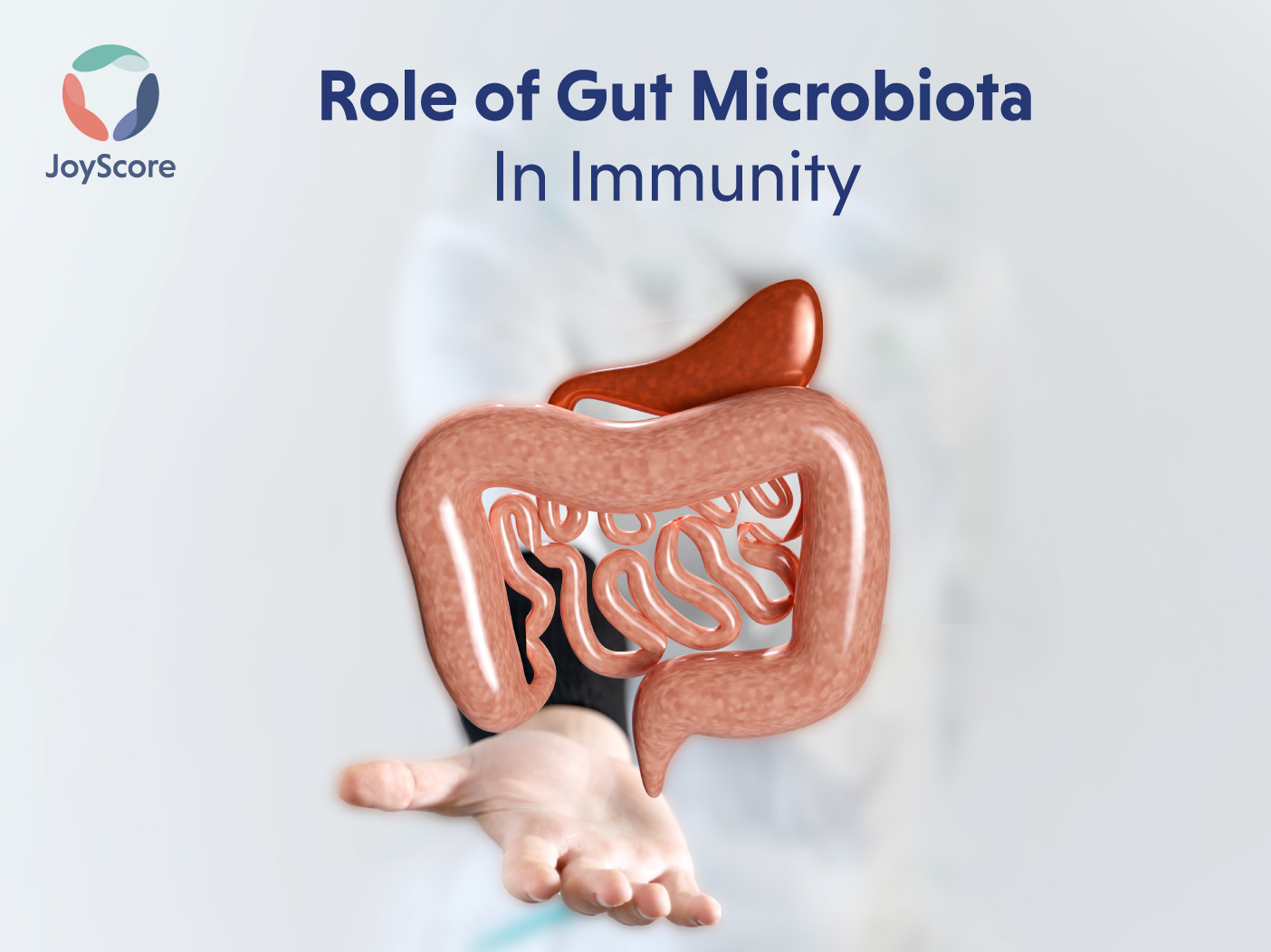Role of Gut Microbiome in Immunity
The term microbiome or microbiota refers to the complex community of microbes such as bacteria, viruses, fungi, and other trillion species that reside in and out of the human body throughout the full life cycle.
These microbiomes are very essential to their host, i.e., the human body they live in. Many studies prove that our gut microbiome plays a vital role in providing a healthy life.
The gut microbiome refers to the collection of microbes that resides within our gastrointestinal tract and comprises the major proportion of the entire microbial community.
The main role of the microbiome in our body is to regulate the immune system and metabolic activities.
The immune system refers to the organs and processes of the body that provide resistance to infection and toxins we encounter through our surroundings.
However, 70-80% of our immune system is present in our gut; therefore, this is where our microbiome and the immune system interact.
One must have a strong immune system as it not only helps in the elimination of foreign pathogens but also ensures that our cells do not attack our own body. This phenomenon is also known as self-tolerance.
Thus, here the role of gut microbiota in immunity becomes inevitable. It helps to regulate our local intestinal immune system.
ROLE OF GUT MICROBIOTA IN IMMUNITY
Microbiota shapes our immunity to achieve immune homeostasis/ balance. Homeostasis is a self-regulating process by which our immune system maintains stability while protecting against infections. Gut Microbiota is responsible for the induction, training, and function of the host immune system when encountering some pathogens.
A healthy microbiome-immune interaction helps avoid various gastrointestinal diseases, including inflammatory bowel disease, Celiac disease, and extra-intestinal diseases like Rheumatoid arthritis, some neurodegenerative disorders, and even cancer.
The role of gut microbiota in immunity has become clear due to various research studies. These studies have emphasized how dysregulation in the microbial communities in the gut can lead to autoimmune diseases.
Inflammatory bowel disease (IBD) is the most common autoimmune disorder of the gastrointestinal tract. Many scientific studies have also shown differences in the number and types of gut microbes of IBD patients compared to normal adults.
Gut microbiota is also useful in understanding disease pathogenesis and the development of new microbiome-related treatments.
We cannot really change our genes, but we can easily change our gut microbiome through various scientifically supported ways. Gut microbiome researchers have made it possible to read out our microbiome and modify it. This can help restore our health and prevent diseases.
Some gut microbiome targeted therapies include dietary intervention, use of nutritional supplements, fecal microbiota transplant, etc. These methods are used nowadays in the treatment of metabolic diseases, cardiovascular diseases, and cancer.
Ways to improve gut microbiome and overall health:
1) Probiotics
They are beneficial bacteria that prevent gut inflammation and other intestinal problems.
Some natural sources of probiotics are fermented vegetables, kimchi, kombucha, miso, etc. Probiotic supplements are also available in medical stores.
2) Prebiotics
Probiotics feed on the non-digestible carbohydrates that are prebiotics. Thus, the beneficial bacteria multiply in our gut. Some prebiotic-rich foods are asparagus, banana, garlic, etc.
3) Cutting down sugar and artificial sweeteners
A lot of sugar and sweeteners cause an imbalance of gut microbes. An animal study has also shown the role of certain artificial sweeteners in increasing the number of bacteria that cause metabolic diseases like diabetes and heart diseases.
4) Taking antibiotics only when necessary
Unnecessarily taking antibiotics leads to antibiotic resistance and also causes damage to our gut microbiota and immunity.
5) Avoid stress and exercise regularly
Researchers suggest that certain stress hormones can disrupt the gut microbes and negatively affect your gut health. Therefore, for the management of stress, one must adapt techniques like meditation, deep breathing exercises, etc. Exercising regularly and eating well will also help reduce stress.
6) Avoid smoking
We all know about the harmful effects of smoking on our lungs and heart, but it is even important to understand how it alters the intestinal flora or gut microbiota. This ultimately leads to some serious gastrointestinal diseases and even cancer.
7) Go for a vegetarian diet
A vegetarian diet rich in prebiotics benefits your gut as it will lower gut inflammation by altering the types of gut microbes.

ROLE OF GUT MICROBIOTA IN IMMUNITY AND INFLAMMATION
In various parts of the world, the symbiotic relationship between the microbiota and immunity is disrupted. For instance, in the United States, antibiotics are prescribed very often and so are adversely affecting the microbiota of its population.
Similarly, in other countries, poor diet selection is also responsible for the lack of resilience and diversity required to balance the immune responses. These factors ultimately lead to autoimmune and inflammatory disorders.
We can understand this concept more logically when we learn about the scientific work of some renowned scientists. For instance, Doderlein explained the role of lactobacilli as gatekeepers of the vaginal ecosystem and Metchnikoff associated prolonged life with fermented milk products.
Therefore, variations in the microbe composition of your gut will directly affect the protecting barriers of one’s system and induce inflammatory diseases. Some diseases associated with the failure to regulate immune responses range from inflammatory bowel diseases to allergies or some severe metabolic syndromes.
ROLE OF MICROBIOTA-IMMUNE SYSTEM IN A FETUS
The mechanism by which the neonatal tissues adapt to the environment during their passage through the birth canal is very important. These early interactions set the tone of the overall immune system along with the help of factors contained in breast milk.
Indeed, colostrum in breast milk contains live microbes, metabolites, and immune cells, which shape the breastfed infant microbiota. Thus, colonization with the microbiota limits inflammation and helps maintain the immunoregulatory environment in the early stages of life.
CONCLUSION
Autoimmune and inflammatory diseases are rising dramatically due to the dysregulation of an immune response. Hence, learning about the role of gut microbiota in immunity and inflammation becomes important.
This area of research will aid in developing advanced microbiome-related treatments that are essential to cure gut-related problems at an early stage. Therefore, leading a stress-free life with healthy eating habits is a must for avoiding some deadly metabolic and inflammatory diseases. For more such information, download the JoyScore App and live a better life.
Download the Joyscore app Now!
Download on the Appstore
Get it on Google Play



